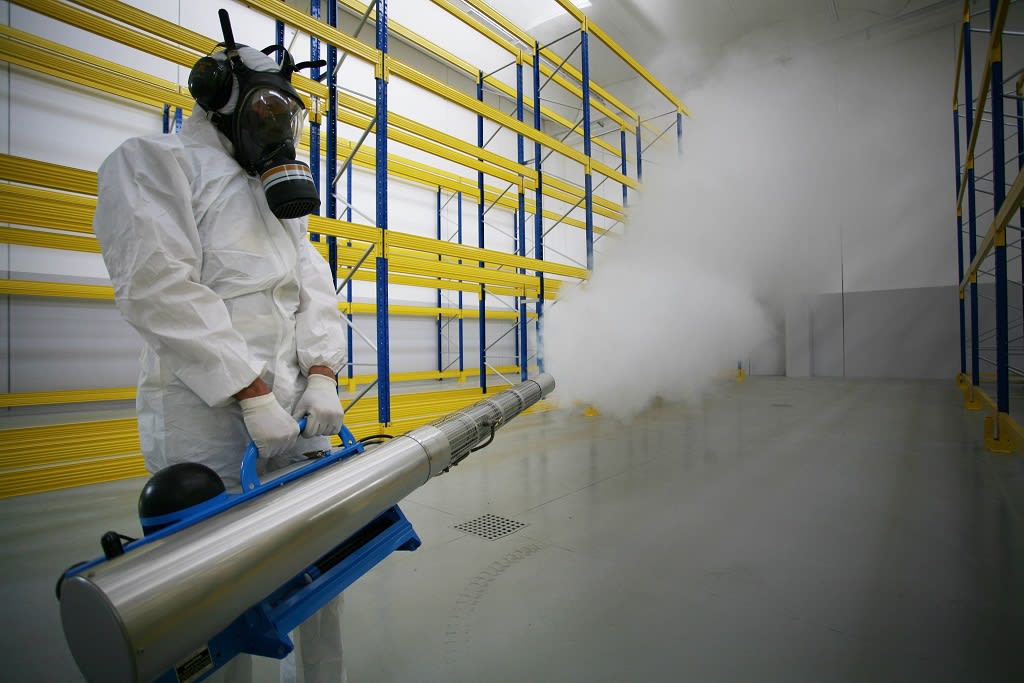Navigating the Green Path: The Evolution of Eco-Friendly Pest Management Practices
Pest management services

In an era where environmental consciousness is at the forefront, the evolution of pest management practices has seen a significant shift towards eco-friendly solutions. The traditional methods heavily reliant on chemical pesticides are being replaced by sustainable alternatives that prioritize the health of our planet. This article explores the journey of eco-friendly pest management practices, highlighting their importance, benefits, and the ongoing commitment to creating a greener, healthier environment.
The Roots of Eco-Friendly Pest Management
Historically, pest control has been synonymous with the use of potent chemical pesticides, often causing unintended harm to non-target organisms and ecosystems. The dawn of eco-friendly pest management can be traced back to the realization that a more balanced and sustainable approach is necessary. This paradigm shift acknowledges the interconnectedness of all living organisms and seeks solutions that target pests without compromising the health of the environment.
The Rise of Integrated Pest Management (IPM)
One cornerstone of eco-friendly pest management is the adoption of Integrated Pest Management (IPM). IPM is a holistic and preventative approach that focuses on long-term solutions rather than quick fixes. By combining biological, cultural, mechanical, and chemical control methods judiciously, IPM minimizes environmental impact while effectively managing pest populations. This method promotes the use of natural predators, habitat modification, and crop rotation to maintain a balanced ecosystem.
Eco-Friendly Pest Management in Agriculture
Agriculture, a sector heavily reliant on pest control, has witnessed a notable transformation in its approach. Eco-friendly pest management practices in agriculture include the use of beneficial insects, crop rotation, and the deployment of pheromones to disrupt pest mating cycles. These methods not only reduce the need for chemical pesticides but also contribute to soil health, biodiversity, and overall ecosystem resilience.
Benefits of Eco-Friendly Pest Management
1. Environmental Preservation: The reduction in chemical pesticide usage minimizes soil and water contamination, preserving the delicate balance of ecosystems. Eco-friendly practices support biodiversity by protecting beneficial insects, birds, and other non-target species.
2. Human and Animal Health: Traditional pesticides can pose health risks to humans and animals. Eco-friendly alternatives, such as biopesticides and botanical extracts, offer effective pest control without compromising the well-being of living organisms.
3. Sustainable Agriculture: Eco-friendly pest management fosters sustainable agricultural practices by promoting soil health, reducing dependence on synthetic inputs, and ensuring the long-term viability of farming systems.
4. Cost-Effectiveness: While the initial investment in eco-friendly pest management may seem higher, the long-term benefits, including reduced healthcare costs and environmental remediation, make it a financially prudent choice.
5. Resistance Management: Prolonged use of chemical pesticides can lead to pest resistance, rendering them ineffective over time. Eco-friendly approaches, on the other hand, provide a more sustainable and resilient solution by avoiding the development of resistant pest populations.
6. Preservation of Non-Target Species: Traditional pesticides often harm beneficial insects, birds, and other non-target species. Eco-friendly pest management preserves these organisms, maintaining a healthy and diverse ecosystem. This, in turn, contributes to natural pest control as these beneficial species act as predators or parasites to pests.
7. Improved Soil Fertility: Eco-friendly pest management practices, such as organic farming and the use of biopesticides, contribute to improved soil fertility. Avoiding the use of synthetic chemicals allows for the development of a robust soil micro biome, promoting nutrient cycling and enhancing overall soil health.
8. Reduced Residue in Food: Chemical pesticides can leave residues on fruits, vegetables, and other crops, posing potential risks to human health. Eco-friendly pest management methods, especially those adhering to organic farming principles, result in lower pesticide residues in food, ensuring safer and healthier produce for consumers.
9. Mitigation of Water Pollution: Traditional pesticides can leach into water bodies, leading to water pollution and adversely affecting aquatic ecosystems. Eco-friendly pest management practices, such as using biological controls and natural repellents, significantly reduce the risk of water contamination, safeguarding aquatic environments.
10. Enhanced Ecosystem Resilience: Eco-friendly pest management fosters biodiversity and ecological balance. A diverse ecosystem is more resilient to environmental changes and disturbances. By protecting various species and their habitats, eco-friendly practices contribute to the overall resilience of ecosystems in the face of challenges like climate change.
11. Community Well-Being: Eco-friendly pest management practices often involve close collaboration with local communities. This engagement can lead to increased awareness about sustainable agriculture, ecosystem health, and the importance of reducing chemical inputs. The shared responsibility for environmental stewardship enhances community well-being and cohesion.
12. Support for Pollinators: Many eco-friendly pest management strategies prioritize the protection of pollinators such as bees and butterflies. Given the vital role pollinators play in food production, their preservation supports crop yields and the health of flowering plants in natural ecosystems.
The Future of Eco-Friendly Pest Management
As technology continues to advance, the future of pest management looks even greener. Innovations in biological control, precision agriculture, and data-driven decision-making are shaping a future where pests are managed with precision, minimizing environmental impact. Robotics, artificial intelligence, and remote sensing are emerging as powerful tools in the arsenal of eco-friendly pest management.
Conclusion
The evolution of eco-friendly pest management practices signifies a commitment to a healthier, more sustainable future. By embracing alternatives that prioritize environmental well-being, we pave the way for a harmonious coexistence with the natural world. The journey towards navigating the green path in pest management is ongoing & as stewards of the planet, it is our responsibility to tread lightly & leave a legacy of balance and biodiversity for generations to come. For more information, visit us: - https://quantumpest.com/
Email - [email protected]
Call — +1 (818)798-1588





Comments
There are no comments for this story
Be the first to respond and start the conversation.